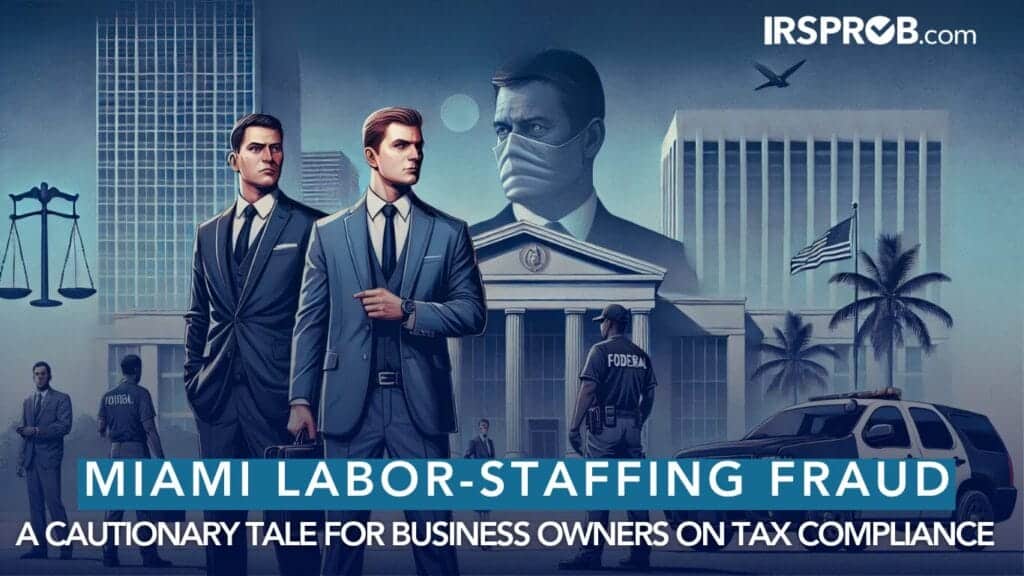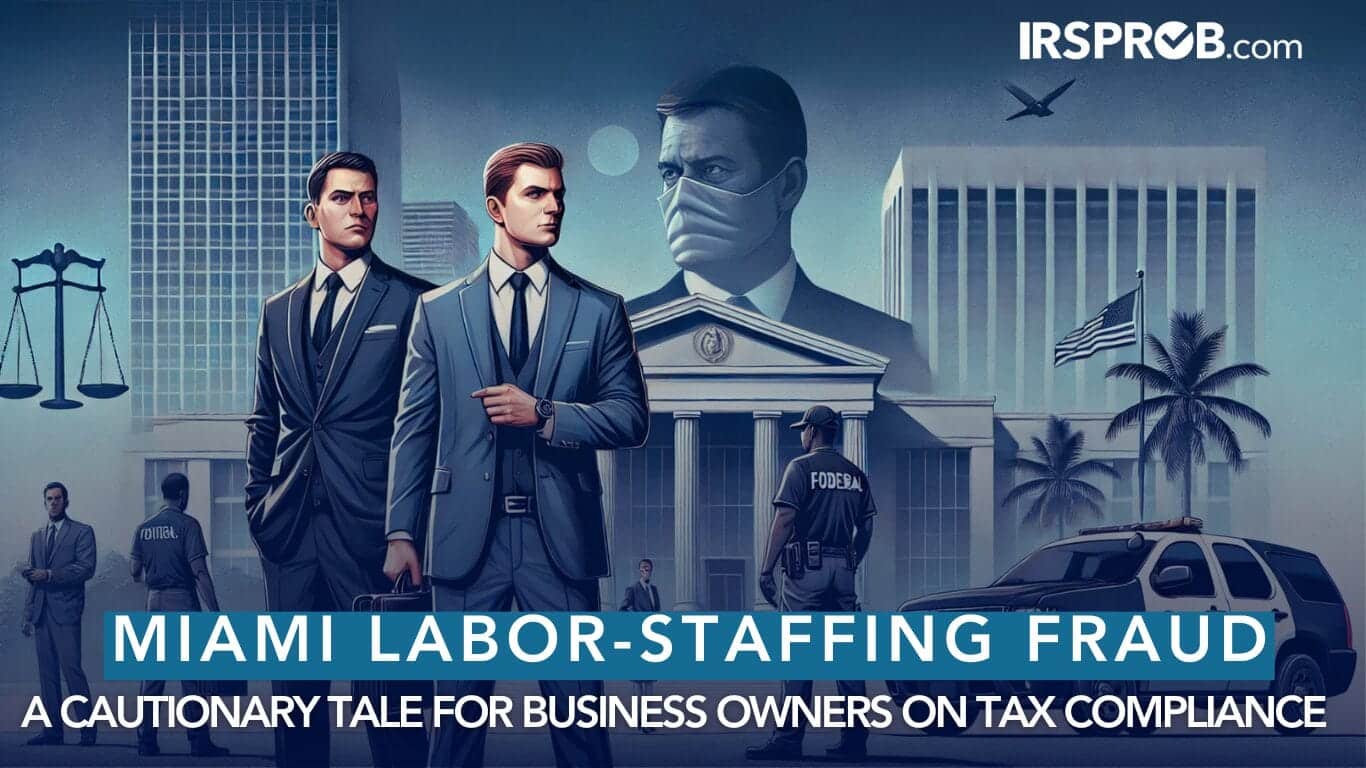
Two Ukrainian nationals recently faced a federal grand jury in Miami, following their extradition from Thailand, for charges related to labor-staffing companies they operated in Florida. The men, Oleg Oliynyk and Oleksandr Yurchyk, are accused of engaging in a complex scheme that not only violated U.S. immigration laws but also allegedly defrauded the IRS over a span of more than a decade. For business owners, this case serves as a stark reminder of the consequences of evading tax responsibilities and the importance of understanding tax compliance, especially in the labor staffing industry.
Understanding the Charges
Oliynyk and Yurchyk are facing serious charges: conspiracy to defraud the United States, conspiracy to harbor non-resident aliens, and conspiracy to commit money laundering. The charges stem from allegations that they operated staffing companies—such as Paradise Choice LLC and Tropical City Services LLC—that employed non-resident aliens unauthorized to work in the U.S. According to the indictment, they failed to withhold essential payroll taxes, including Social Security, Medicare, and federal income taxes, which are crucial components of the U.S. tax system.
For business owners, the implications are clear. The IRS and other federal agencies take payroll tax compliance very seriously, as these taxes directly fund vital social programs. Neglecting to withhold these taxes or filing inaccurate returns, even unintentionally, can lead to severe penalties. In this case, the defendants face potential prison time, hefty fines, and additional penalties.
Payroll Tax Compliance: What You Need to Know
This case underscores the critical importance of proper payroll tax compliance for businesses of all sizes. According to IRS guidelines, all employers are required to:
- Withhold Payroll Taxes: Employers must withhold Social Security, Medicare, and income taxes from their employees’ wages. Failure to do so can result in both civil and criminal penalties.
- File Accurate Tax Returns: Payroll tax returns must be accurate and submitted on time. Filing false returns, as alleged in this case, can result in federal charges of tax fraud.
- Use Proper Classification: Businesses should carefully classify workers as either employees or independent contractors, as this determines the employer’s tax responsibilities. Misclassifying workers to avoid tax obligations can lead to penalties and interest on unpaid taxes.
The Cost of Non-Compliance
If convicted, the defendants could face up to 35 years in prison and significant fines. The cost of non-compliance doesn’t just impact the business owners but can also affect the business itself, including reputational damage, loss of customers, and operational disruptions. The IRS has increased its focus on employment tax compliance, deploying a range of penalties for businesses that fail to comply. These include:
- Civil Penalties: For failing to file or pay payroll taxes, the IRS can assess penalties up to 15% of the tax due, plus interest.
- Trust Fund Recovery Penalty (TFRP): The IRS may hold business owners personally liable for unpaid payroll taxes under the TFRP, which can be up to 100% of the unpaid tax.
- Criminal Prosecution: As demonstrated in this case, willful evasion of payroll taxes can lead to criminal charges, potentially resulting in prison time.
Lessons for Business Owners
The IRS’s Criminal Investigation (IRS-CI) unit played a crucial role in investigating this case. IRS-CI special agents are the only federal law enforcement agents with the jurisdiction to investigate violations of the Internal Revenue Code. For business owners, this highlights the importance of adhering to IRS regulations, as the agency has the resources and mandate to pursue violations aggressively.
To avoid similar pitfalls, business owners should ensure they:
- Seek Professional Advice: Consulting with tax professionals can help navigate complex tax regulations, ensure proper withholding, and reduce the risk of costly mistakes.
- Implement Compliance Measures: Establishing rigorous compliance measures, such as regular audits and tax reporting procedures, can help ensure that all tax obligations are met accurately and on time.
- Stay Informed: Tax regulations frequently change. Staying informed about new rules and requirements, such as adjustments to payroll tax rates or classification guidelines, can help prevent non-compliance issues.
Conclusion
The allegations against Oliynyk and Yurchyk are a sobering reminder for business owners of the serious consequences that can arise from payroll tax evasion. By staying informed, consulting with professionals, and adhering strictly to IRS regulations, business owners can avoid similar legal troubles. While this case is still ongoing and the defendants are presumed innocent until proven guilty, it serves as a crucial lesson for anyone in business: tax compliance is not optional. Failure to comply can lead to severe financial and legal repercussions that could jeopardize the future of your business.
For further guidance, consult IRS publications on employment tax obligations and payroll tax requirements to ensure your business is fully compliant with federal laws.








